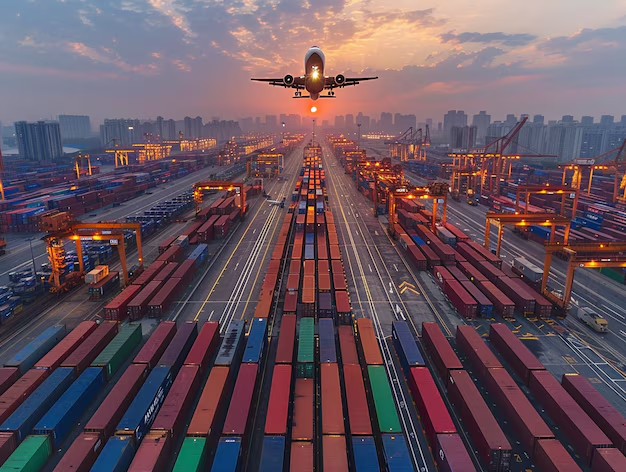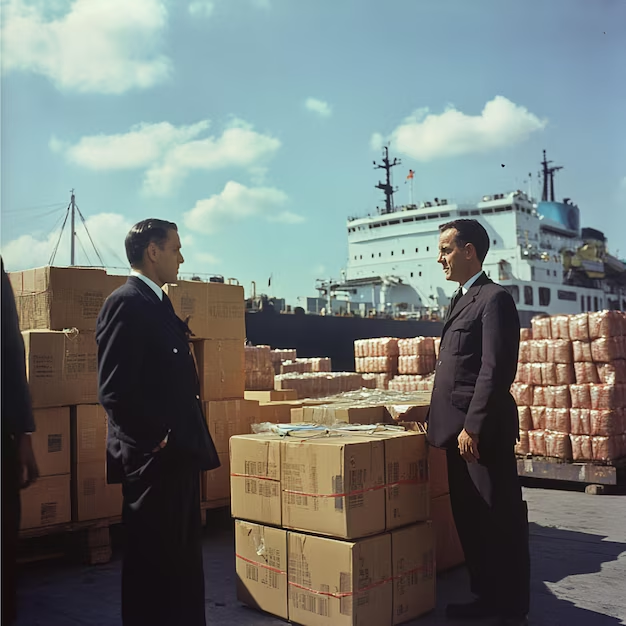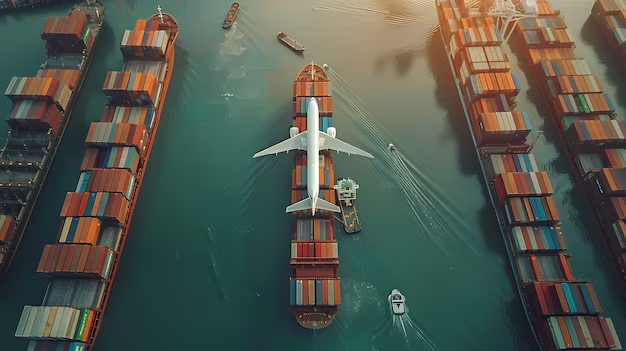
Table of Contents
In this regard, the trend of globalization has also been encouraged by technology as it has continued to grow.
Consequently, companies have opted for international shipping solutions, enlarging the market. In that case, freight forwarders act as agents for the shippers and the carriers and handle all process aspects.
They also perform the important function of moving goods from one point to another destination in a safe and timely way.
In shipping such goods the company may also provide additional services like cargo insurance, shipment tracking and customs clearance services.
Such tasks are very complex since foreign trade usually involves multiple elements such as regulations, papers and other bureaucracy around trade.
They also help improve a company’s shipping processes and better control its costs and supply chain by applying their expertise and carrier network.
With the rising need for services such as supply and demand for carriage looking for cargo, it is logical to conclude that every serious business must learn more about freight forwarders to survive in the market.
This paper shall focus on some of the common questions addressing the role of freight forwarders and their importance to shipping activities.
What is Freight Forwarding?

The transportation of goods from one area to different areas and related activities are conducted by a freight forwarder on behalf of the ship owners.
As much as they can issue bills of lading, they do not engage in transport operations for the person or company employing them, who will choose carriers and hire them to process documents related to these activities.
Freight forwarding purchasing services offer the services of looking for transportation to carry their clients’ goods to their intended destination.
This would be by using ocean enslaved people, aircraft or vehicles, and intermodal transportation systems.
Because of their proficiency in knowledge, forwarders tend to optimize the efficiency of the shipping process about the time and other costs incurred by the customers.
Besides, the freight forwarders retail their services to facilitate the international shipping process by taking on responsibility for international documentation, including customs clearance.
They proceed to the shipping stage after filling out export-related documents and forms such as bills of lading, pro forma invoices, exportation permits and other documents.
Thus, more businesses will likely maximize their core functions while minimizing risks associated with making shipping more barriers, such as the chances of both time and materials waste being accounted for as a deterrent to indirect homelessness.
Why should businesses engage in the use of freight forwarders?

For businesses exporting and importing goods, consider using a freight forwarder as it is useful.
To begin, international freight forwarders are quite conversant with the different regulations and requirements of shipping, something that can be daunting to individuals and companies who rarely engage in international moving.
They make sure that the shipments are executed within the rules that apply to the region to avoid incurring unnecessary exposure to fines or other disruptions.
Also, a freight forwarder can assist businesses in minimizing costs and the time consumed in carrying out certain business activities. Through their networks, they can market the business’s cargo transportation to the carrier at the most cost-effective.
They can reduce transportation costs and improve operational efficiency, which reduces overall transportation costs by consolidating shipments and optimizing their use of the transport system.
All in all, the proper steps are undertaken to provide customers with such services and reduce their risk exposure, e.g. c, shipment insurance.
They seal and insure the shipping, offering clients peace of mind even in the worst-case scenario. The worrying about logistics is no more concerned with the companies because a freight forwarder does the leg work.
In this way, they can focus on running the business and serving their customers.
What Steps Do Freight Forwarders Take Toward Custom Law Compliance?

One of the most important steps concerning cargo shipping is customs clearance, and the freight forwarder makes the journey through customs easy. Such include the organization and submission of customs-related documents.
For this one, there is a form of goods declaration for the importation of goods, classification of goods, and payment of customs duties.
Customs brokerage is a profession with which freight forwarders always work, as it is nearly always a licensed authority concerned with customs affairs.
Their concerted practice is to assert that the documents the clients provide are enough and adhere to the area’s requirements so that no more unnecessary time-wasting or sanctions may cause time wasting.
As much as freight forwarders provide or make their services available to the clients and other stakeholders, they also note the norms and assist in respect of the changes made to them.
Freight forwarders offer their clients duty and tax payment services. This is important in hastening the procedure so that minimal interruptions are experienced.
In most cases, this participation in customs clearance is why goods can be delivered on time and increase the efficiency of the entire supply chain process.
What Services Are Offered By A Freight Forwarder?

Assisting with the documentation and various freight forwarding services compels the companies to employ in their shipment of goods. Apart from other smaller services, freight forwarders have the following significant services:
- Coordination of the Transportation:
The forwarders consolidate and prepare everything for transport with different professions ensuring judicious transport of clients goods at the stated fee. With the business demand they can provide air, ocean and land transport.
- Customs Clearance:
As highlighted, freight forwarders have various functions, including customs clearance, which involves making customs documents and following certain rules to make efficient and progress.
- Cargo Insurance:
Many other freight forwarders also provide cargo insurance against the baggage, goods, and merchandise on new exteriors in addition to these services. Then, it ensures that the lack of risk and loss will not tempt the firms.
- Tracking and Visibility:
Freight forwarders allow companies to keep track of cargo so they can follow their shipments whenever the cargo is moved from one place to another. With this information, companies can make timely orders regarding their shipments or avert any likely problems.
- Consultation and Support:
The services provided by freight forwarders also encompass that of Pep, who assist shipping for their client’s interest and get effective shipping methods. They address such issues as optimum methods, liabilities, and cost savings.
- Other Costs:
Transportation is not only limited to the carriage of the goods but includes other costs that inflate, such as the rent for the equipment and tools to move the goods by sea or air and costs related to cargo insurance, loading and unloading.
Considering these factors rests with the freight forwarders. As a result, there are sufficient and reasonable shipping costs; therefore, the enterprises can plan on logistics.
FAQ’s
Q: What can a freight forwarder also be referred to as?
A freight forwarder or freight forwarder services, also known as a forwarding company, provides forwarding services, which include the combination of transport and delivery of the shipper’s cargo utilizing several service providers and the border crossing.
Q: Who is a shipper and freight forwarder?
A shipper is a person or company that manufactures, sells, or dispatches goods, whilst the freight forwarder is an agent who arranges for transporting and handling those goods.
Q: What position does a freight forwarder hold in the supply chain?
A freight forwarder manages the overseas transportation of goods and undertakes the entire shipping logistics, including transportation efforts, document control, customs diligence and other activities necessary to ensure logistics efficiency.
Q: Who uses a freight forwarder?
The freight forwarders shall likely be utilized by businesses, producers, exporters and even importers focusing on distributing and acquiring commodities.
Conclusion
For companies dealing with export or import operations, freight forwarders hold a significant position in the business chain.
These activities increase the overall effectiveness of the shipment For their clientele, freight forwarder is an uncomplicated way of engaging in international trade. In this day and age, this is the most opportunistic position for making those elusive profits worldwide.

